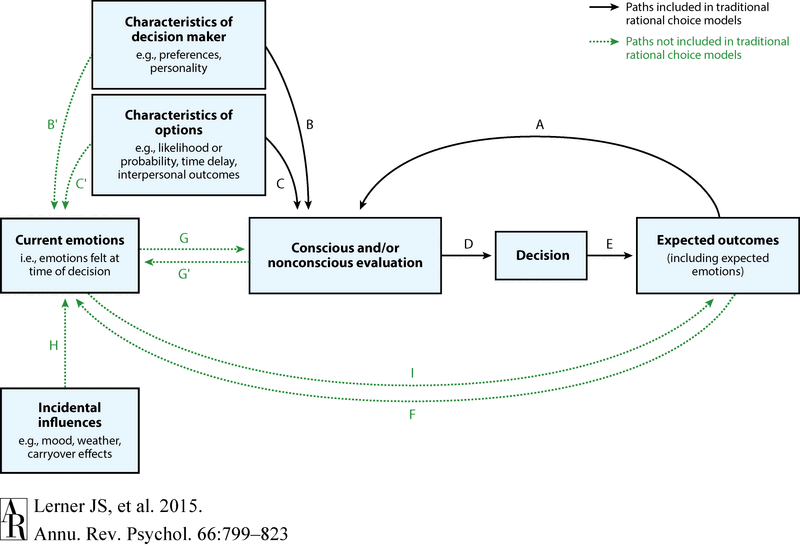Hi, It is Xiaoji (Xiao Xiao) again. I write, research, perform, and play mostly in Berlin. I work with bordering practices, notions of securities, and infrastructure of alternative political imaginaries. Together with Yve Oh and Yumo Cheng, I founded the interdisciplinary art collective EAST ALIEN COMPANY which negotiates with our curatorial, performative, and time-based practices. In the past months, I can gladly say that I am concluding a milestone for the Parallel Society project.
What is the Parallel Society?
The Parallel Society is a cyber drama taken in the form of a web-based game and interactive fiction on narratives of two main characters: In what ways do a migrant who journeys thousands of miles from their homeland and a rural villager who has only known the town adjacent to their birthplace echo, despite their seemingly disparate backgrounds?
The Parallel Society explores the poetics and the politics behind the stories of historically marginalized communities: by featuring the parallel fate of two characters, a Lebanese migrant in Barcelona and a villager in rural China's Henan province.
The narrative comes down to a format like the 1993 film Groundhog Day, the stories unfold through the retelling of the same stories repeatedly. The audience and player will be trapped in a time loop, where they are invited to re-live the same events repeatedly and make different decisions on how they, as the character in the game, would act.
Project Updates
Through the past few months of the development process, the project now is in the form of both a video installation and a game narrative prototype: the game now has two entry points for two characters' stories and three acts for each of them. Based on the materials from the video installation, I further developed my research and game design with the support of the TuesdayJS game development tool and created introductory tracks, scripts, and visuals for each of the theatrical acts.
Progress on Objectives
Research Updates
In this period of the project, I have two main research questions:
- Despite the many academic and policy-oriented definitions of financial exclusion, What exactly are the forms of financial exclusions experienced by the two targeted communities I am working with? How does it manifest in their lived realities?
- Considering the importance of the decision for a format like Choose Your Own Adventure game, how does that influence their decison-making process?
Financial exclusion often means "not having access to financial services" narrowly defined as not having a bank account, and "unbanked population". This does not include many who have faced barriers in accessing other financial services despite owning an account, for example, migrants who do not have access to the financial services in the country they reside in but only informal economics networks. The project decides to focus on digital financial exclusion beyond institutional and bureaucratic exclusion as a result of long-standing marginalization. e.g.: the marginalization of migrants in society and, the marginalization of the rural population. Financial inclusion is key to economic empowerment, and lift people out of poverty, and the instruments used vary. However, research has also shown that in quite many countries, financial exclusion or semi-financial exclusion (semi-banked) are voluntary: but what do we mean by voluntary? If one faces racism and lack of access in dealing with financial institutions and decides to not use their provided services on paper, is this voluntary or not?
For the two communities I am targeting, another important factor of their voluntary or involuntary exclusion is access that is connected to the restriction on their freedom of movement. The case of comparison here is the increasingly intensified application of digital technologies in the external bordering practices of the EU and the internal bordering practices of China, and the production and reinforcement of relevant socio-technical imaginaries and spatial imaginaries. Legal scholars such as Paula Pasquali has concluded that the external territorial and legal borders of EU that are the results of a few historical developments such as Lisbon Treaty, and the internal administrative borders of China which are primarily centered around Hukou system, have much in common in its legal modalities and influences by similar economic rationale and securitization tendencies.
These barriers that are not necessarily directly created by financial institutions create higher costs for them to enter the use of financial services provided by financial institutions, which very often are connected with other social-political systems that impact them: for example, the main reason for involuntary financial exclusion for a migrant is the lack of appropriate or accepted document.
Looking again at the concept of 'voluntary' exclusion, it is helpful to understand decisions being made in dealing with financial institutions or financial technical systems as a form of economic behavior. Then the question becomes a more general but rather interesting one: what drives people's economic behavior? There are for sure, many reasons, but following the temporal framework by Elena Esposito, here I quote: 'There has been a great deal of discussion about the role of expectations in economic behavior. Expectations are nothing more than a present reflection on an uncertain future and an attempt to build up an orientation.' What constitute expectations and are connected to expectations, are emotions and imaginaries. It is not news that emotion is extremely important in decision-making, the psychology as well as cognitive science behind decision-making have been playing a key role in advertising, sales, and even scams, for example. The below image is a framework for understanding the connections between emotions and expectations from a psychology research:
Imagination, on the other hand, was also influenced by emotions and influenced the projected expectations of actions. Social imaginaries as a framework often refer to the shared cognitive and normative disclosure of how a society could function. Imagination here matters not only in the sense of determining individual behavior but also in how society can function through symbolic orders. People often find it hard to imagine what's outside of their lived experiences without some external push: in this case, their lived experiences are categorized by the lack of mobility and access. I have drafted my framework of decision-making as below:
To be more specific on the communities, I also did mapping for the needs, barriers, emotions, expectations, and imaginations of the villagers and the migrants based on both literature and conversations. During the mapping, I have identified some of the most important financial services needed by them: remittances and loans. I have also found out that intrinsic survival needs are not always the same as financial need: the financial need can be easily compromised if it seems contradictory to their most important long-term survival need.
Game Design
Based on these research results, I have designed the games using the Tuesday JS visual novel engine: a simple web-based, free and open-source visual novel editor that can be used in a web browser. It is written in JavaScript without using any third party libraries and thus does not require additional software installation. The engine uses standard HTML5 document elements such as div and img. This allows the use of any media format supported by browsers including vector graphics svg, gif animations and css styles.
The game and the cyberdrama will take the form of interactive fiction, and I wish for it to be less like a simulation of choose your own adventure, and more like an interactive poetic intervention that triggers and collages different sensory loops that are relevant to the characters' experiences of exclusion, and their re-living of different decisions before their death. The choice is based on the experiences and feedback gathered from the Open Studio exhibition. The game should function as a form of digital poetry and non-linear narration, where based on the choice of the audience, it showcases different narratives.
The incentive structure of the game is driven by both the poetic narrative and the 'access visual'. The game will feature two visual codes of 'access' that represent whether the character has access or not: for the rural village, the access is based on the color of the 'health code', and for the migrant, the access is based on the identity document. During the 2022 Henan Banks scandal, the government staff changed the health code deliberately to prevent the protests. However, the visuals of the game serve only as an illusion that represents the shadow from the past. The actual narrative is represented by the sound and the text in the game.
How do people know what decisions to make? This is probably the most relevant question for a choose your adventure genre. It is not a plain story here: since emotions, expectations, and imagination are so important for decision-making. If we want people to make different decisions, we have to encourage people to imagine differently and feel differently.
The most important incentive structure is based on this concept: the decisions the audience needs to make while reading the story are based on two things:
- The audience has to choose among different options of 'feelings' and 'thoughts' by the characters, and the actions that follow the feelings and thoughts will only appear on the next page.
- There will be a hidden variable 'Imagination': the hidden variable is an indication of the capacity of imagination, with each choice the audience makes, the game will be secretly keeping track. Certain choices and content will only be visible if the players have a certain score in their 'Imagination' variable.
Each of the stories has three acts, and each of the acts has different stories each time one plays, each act has an opening audio track. With the support of the media artist Yve Oh, these tracks are produced as important world-building materials. To give an example from Act II in the story of the villager, the track is edited with a recording of a police phone call between a victim of the 2022 Henan bank protest, some audio recordings from the streets of the protest, and a press conference on financial stability in the UK. Through this track, I want to showcase the soundscape of how financial stability in news is disclosed differently in people's actual lives, to show the contrast as well as the echoing themes in these recordings.
Check the audio track for Act II
What’s Next?
I am yet in search of the better way to publish the project and there are still quite some details to polish on my side. The first thought is to publish online, but I am considering making it adapt as an entire website, instead of publish as just a game at Itch.io. I am also in search of opportunities to showcase the video installtion and the cyberdrama in a group exhibition.
I am very interested in exploring the world of digital financial inclusion further, the deeper I dive into the topic, the more I understand the urgency of it, and the importance of building a movement around the topic.
Community Support
Same as before, I would love to hear your thoughts on my creative process, and on the topics that I am working on. What are your personal relationship with money, and financial systems as a whole? Are you in touch with any immigrant communities and communities from rural areas who are historically or still excluded from the financial systems? are you interested in how your work, being a new technology, policy, other forms of innovations, and undefined practices might be helpful for a shared future vision of a financial future with equity and inclusion? Maybe now, even more on how you imagine, what kind of imaginaries do you have when making economic decisions?
Let us read poems, watch video clips, play games, and share our dreams with each other.
Additional Comments
I am very grateful for the opportunity to develop my work in the framework of Interledger and to have the opportunity to develop my research and art practices further by showcasing my work to diverse audiences that I would not usually have the chance to get in touch with. I am also so grateful for the support of the whole team to give understanding and tangible support to my non-linear process for the non-linear narrative. It's been a pleasure to work with everyone!












Top comments (0)